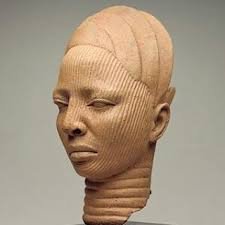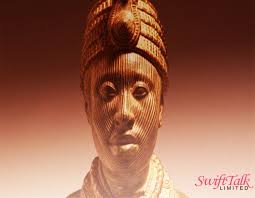Queen Luwoo Gbagidi was the first and only female Ooni to be crowned as the Ooni of Ife. She was the 21st Ooni. She took over the throne after the demise of Ooni Giesi, and she was succeeded by Ooni Lumobi.
Her reign was said to be filled with terror and fear, especially by the men. The female folks in Ife lost the opportunity of being crowned a king again just because of the wickedness perpetrated by Luwoo while seated on the well-revered throne.
Female Ooni
She was said to be so hard to please that she did not walk on the bare floor. According to palace sources, Luwoo walks on tiles, clay tiles. The residue of the tiles she walked on while she reigned is still available in Ife and other Yoruba land she visited while on the throne because the tiles are unique.

The female Ooni was a beautiful and sophisticated queen who took pride in her physical appearance and that of her surroundings.
Queen Luwoo was said not to spare the menfolk when they offend her or her constituted authority. She was noted to ride erring men as horses for violating her laws.
For her highhandedness, the council of obas in Ife convened and vowed after her demise not to make a female the Ooni of Ife again as they saw Queen Luwoo as being uncontrollable by them.
Although, history has not been kind to her because it was thought that men had always occupied the esteemed stool.
This is due to the fact that Nigerian history is passed down orally, which can lead to negation in the list of Oonis’.
In some records, she is called the Lúwo Gbàgìdá, an offspring of Otaataa from Owode compound, Okerewe. According to oral tradition, she was married to Chief Ọbalọran of Ilode. She became the mother of Adekola Telu, the founder of Iwo town.

Due to the fact she did not enjoy walking on bare soil, she commissioned the creation of uncommon pavements (now owned by the Ife Museum) and various open-air courtyards paved with shreds of pottery to adorn her environment and any other Yoruba town she paid a visit to.
This was also used to punish lawbreakers as the paved the streets of Ile-Ife with quartz pebbles and broken pottery. The miscreants were commanded to bake the clay, and later on use their bare hands to break it into pieces and afterwards lay it on the floor for the queen to walk on.
The elders of the land saw her as being “uncontrollable” and “high-handed.” As a result of this, when her reign had ended, the council of Obas had a meeting and promised never to make a woman the Ooni of Ife ever again.
Ooni Luwoo though given negative labels by her council of chiefs still assisted her son Adekola Tolu to create the city of Iwo, which resulted in making him the first Oluwo of Iwo.

